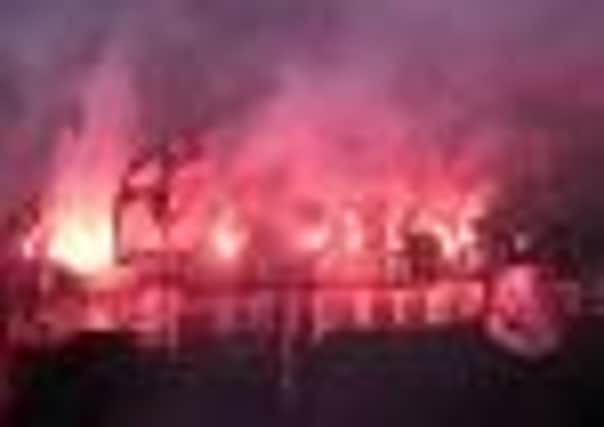Fans look to Europe for ways to cause trouble


South Yorkshire assistant chief constable Andy Holt said forces had seen an alarming increase in the use of fireworks, marine flares and smoke canisters – sights more commonly seen at stadia in mainland Europe.
Reports of violence against stewards and club officials also rose last season, and police have called on one of the region’s largest clubs, Leeds United, to take firmer action against swearing from the stands.
Advertisement
Hide AdAdvertisement
Hide AdThe trends were revealed after Yorkshire clubs Barnsley and Hull City cancelled friendly matches against Dutch team Feyenoord because of fears that travelling supporters would cause trouble.
Mr Holt said: “The overwhelming majority of fans are law-abiding but there still remains a significant minority that seek to use the game to engage in violence and disorder, and that reflects poorly on the reputation of English football.
“We still see a significant level of disorder across the piece.
“In fact, the level of disorder nationally was slightly up last season compared to the season before and that is obviously a concern.
Advertisement
Hide AdAdvertisement
Hide Ad“Other national trends that are a little concerning include what I would call ‘continental’ disorder coming into the UK.
“We are seeing far more use of flares, smoke canisters and fireworks at football matches. Five years ago I could gloat to continental colleagues that it never occurred here, but I certainly cannot do that now.
“As a Yorkshire officer with memories of the tragedies of the Bradford fire and Hillsborough, I am acutely concerned about the dangers that this sort of behaviour presents.”
Yorkshire’s four police forces draw up detailed plans as soon as the fixture list is published each season, estimating how many officers will be needed to keep the peace each matchday.
Advertisement
Hide AdAdvertisement
Hide AdBritish Transport Police officers gather intelligence on potential troublespots on the rail network as hundreds of thousands of fans traverse the country.
Police categorise matches based on the risk of trouble, considering factors such as kick-off times, the clubs’ league positions and previous meetings.
Notable challenges this season include policing two Steel City derbies between Sheffield United and Sheffield Wednesday in League One and planning for Leeds and Hull home games against Championship rivals Millwall, Cardiff City and West Ham United.
Mr Holt said a typical Category A fixture might require 50 officers while about 200 could be needed for a more serious Category C match.
Advertisement
Hide AdAdvertisement
Hide AdCh Supt Mark Milsom, the West Yorkshire Police officer who oversees policing of Leeds matches, said it typically cost £70,000 to keep order at a Category C fixture at Elland Road.
“We would like to see the club do a lot more than what it is doing,” he said, “particularly in relation to the sort of chanting that is abusive, and I mean swearing,
“If that happens at the rugby league, as it does occasionally, a very strong message comes out over the Tannoy straight away, saying that bad language is unacceptable.
“Unfortunately at Elland Road that same approach is not taken, and I question whether some people would feel comfortable bringing others along to that environment.”
Leeds United declined to comment.
Advertisement
Hide AdAdvertisement
Hide AdThe season will end next summer with the European Championships in Poland and Ukraine, where UK officers are likely to be deployed if England qualify.
Banning orders prevent known hooligans from travelling abroad during international tournaments, but English fans still have a bad reputation in some countries.
Mr Holt, who led a team of 14 officers at last year’s World Cup in South Africa, dismissed suggestions that such operations were a waste of money, insisting it was vital for UK police to work closely with forces from host nations.
“Anybody who thinks watching England is a joy has perhaps been on some kind of substance,” he added. “It is hard work, but of course it is interesting and professionally rewarding.”